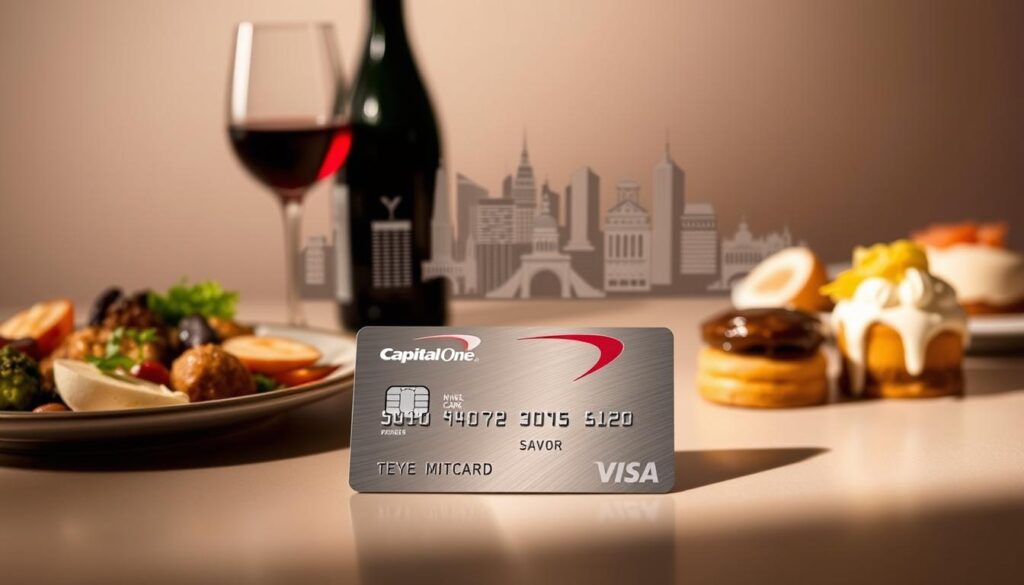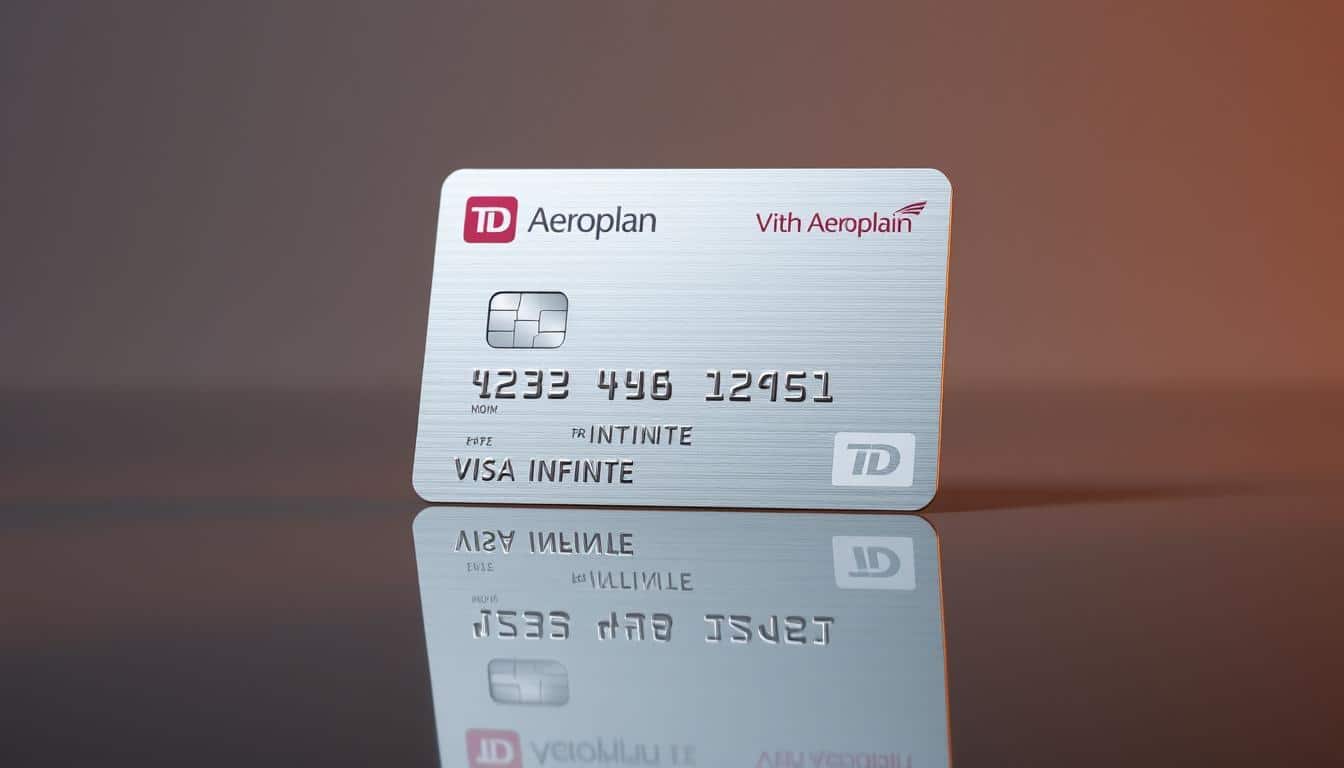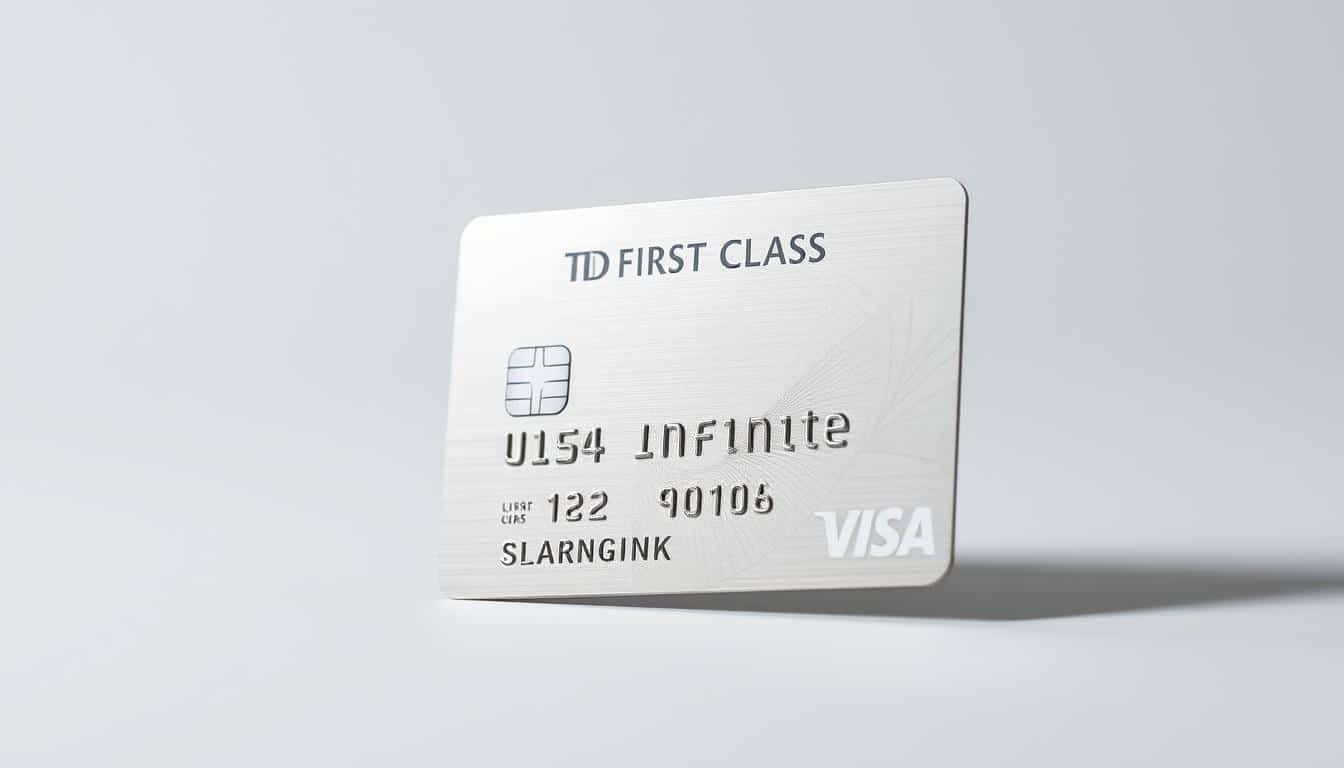The Capital One Savor Card is a rewards credit card built for people who spend heavily on restaurants, nightlife, streaming and live events. As a dining credit card, it highlights elevated cash back on meals and entertainment with Savor Cash Rewards that aim to turn every night out into meaningful returns.
This piece will serve as a practical guide to the Capital One Savor Card and its appeal as the best card for food and entertainment for many U.S. consumers. We’ll explain the core selling points up front: higher cashback card for restaurants and entertainment purchases, a competitive welcome bonus potential, and cardholder perks tied to concerts and dining offers.
Anúncios
The target audience is U.S.-based cardholders who want strong Capital One dining rewards and can manage a moderate annual fee in exchange for outsized rewards on social spending. Readers will get a clear roadmap: an overview, a detailed rewards breakdown, welcome bonus details, fees and APRs, perks and protections, strategies to maximize rewards, alternative cards to consider, and a concise conclusion.
Key Takeaways
- Capital One Savor Card focuses on Savor Cash Rewards for dining and entertainment spending.
- It often ranks as the best card for food and entertainment for frequent restaurant-goers and event-goers.
- The card pairs higher cash-back rates on restaurants with perks for live events and streaming services.
- Expect a welcome bonus and a moderate annual fee; weigh fee against expected dining spend.
- This guide covers rewards, welcome offers, fees, protections, and smart ways to maximize value.
Overview of the Capital One Savor Card and who it’s best for
The Capital One Savor Cash Rewards Credit Card targets people who spend on restaurants, concerts, and streaming. This brief Savor Card overview explains what the card does well and who should get Savor based on habits and credit. Read on for a compact Savor card snapshot, a short profile of the ideal cardholder, and a plain dining rewards comparison to similar premium and no-fee options.
Anúncios
Quick card snapshot
This Savor card snapshot highlights key features: elevated cash back on dining and entertainment, a competitive welcome bonus in many offers, and an annual fee that reflects the higher cash-back rates. Core earning categories usually include bonus cash back at restaurants and on live events, with a standard rate on other purchases. Cardholders can use Capital One Offers, and the card typically includes purchase protections and travel benefits through Capital One.
Ideal cardholder profile
Who should get Savor? Frequent restaurant diners, people who buy concert or theater tickets, and households with multiple streaming subscriptions see the most value. The card fits those who can concentrate discretionary spend in dining and entertainment to offset the annual fee.
Credit requirements tend to be good to excellent for the best Savor offers. Applicants who track monthly spending and can pay balances in full will extract the most benefit from rewards and protections.
How this card compares to other dining and entertainment cards
In a dining rewards comparison, Savor stands out for straightforward cash back rather than travel points. American Express Gold leans strong on dining and groceries with Membership Rewards points. Chase premium travel cards like the Sapphire line focus on travel perks and point transfer value while offering solid dining bonuses.
The Savor card is often the best card for entertainment when cash back is the priority. Redemption is flexible: statement credits, travel, or gift cards through Capital One. For people who prefer simple cash rewards on meals and events, Savor competes well with no-fee cash-back cards that lack elevated dining rates.
Capital One Savor Cash Rewards Credit Card – Best for food and entertainment
The phrase Capital One Savor Cash Rewards Credit Card – Best for food and entertainment matches how people search and what they want. It signals a dining-first cash-back card and helps readers know at a glance this card targets restaurants, bars, concerts, and streaming services.
Users who type similar terms often want clear answers about earning power and real value. This wording answers intent by naming the card and the primary benefit in one line. That reduces confusion and speeds decision making for shoppers comparing dining cards.
Why this specific phrasing matters for search and clarity
Searchers use short, direct phrases when hunting for a dining card. The full name followed by “best for food and entertainment” ties product identity to purpose. That makes it easier to find details about Savor benefits and to compare offers.
Core benefits tied to dining and entertainment spending
The Capital One Savor Cash Rewards Credit Card offers high cash-back rates on dining and entertainment purchases. Cardholders typically get elevated rewards on restaurants, live events, and select streaming services. Redemption is simple: statement credits, checks, or applied travel purchases through Capital One.
Perks may include presale access and special dining experiences when Capital One runs promotions. Those extras add value for frequent diners and event-goers who want more than just cash back.
Real-world examples of rewards accumulation
Sample scenario: spend $600 monthly on restaurants and takeout, plus $150 on streaming subscriptions or concert tickets. Using typical Savor rates, that concentrated spend can generate meaningful cash back over a year.
Example table below illustrates approximate rewards and shows how dining-heavy months boost returns. Figures are illustrative; check live rates before planning purchases.
| Category | Monthly Spend | Typical Reward Rate | Monthly Cash Back | Annual Cash Back |
|---|---|---|---|---|
| Restaurants, takeout, delivery | $600 | 4% (example) | $24 | $288 |
| Streaming & subscription services | $50 | 3% (example) | $1.50 | $18 |
| Concerts, theater, live events | $100 (ticket month) | 4% (example) | $4 | $48 |
| Total (sample) | $750 | Weighted rate | $29.50 | $354 |
These dining cashback examples show how targeted spending can offset an annual fee and deliver net value. Heavy entertainment months push rewards even higher, making the Savor benefits most visible for those who dine out often.
Rewards structure and earning rates for dining, entertainment, and more

The Savor rewards structure centers on higher returns for eating out, attending events, and enjoying digital entertainment. Cardholders should check Capital One’s site for current rates, since offers change over time. Below is a clear breakdown to help plan spending and stack value.
Cash back rates on restaurants, live events, and streaming
Typical Savor earning splits reward restaurants and bars at top-tier dining cashback rates. Many food delivery services also count as dining and earn the same elevated cash back. Purchases for concerts, theaters, and ticket platforms often code as entertainment and qualify for entertainment cashback.
Streaming subscriptions may fall under digital services and sometimes earn streaming rewards. Merchant coding varies across processors, so a Netflix or Spotify charge might earn the streaming rewards rate, while another service could code differently.
Bonus categories and rotating or promotional offers
Capital One runs targeted promotions and Capital One Offers that add bonus value at specific merchants. These bonus categories can be merchant-specific or time-limited and often stack with base category earnings for higher effective cash back.
Watch for email and in-app offers from brands like Grubhub, Ticketmaster, or Hulu. Combining a merchant promo with the card’s dining cashback rates or entertainment cashback can boost returns on big purchases.
Limits, caps, and effective earning strategies
Some bonus categories may carry caps or limited-time limits on extra earnings. Verify any caps before relying on a promotion for large spend.
To maximize value, concentrate discretionary dining and entertainment purchases on the card, claim relevant Capital One Offers, and pair the card with a no-fee card for other categories. Track statement categories monthly to catch merchant coding quirks, such as venue food selling under retail instead of entertainment.
Monitoring earns you clearer effective rates and helps avoid surprises from miscoded charges. Use the card where it pays best and shift lower-rate spending when another card delivers a better return.
Sign-up bonus, welcome offer, and minimum spend requirements
The Capital One Savor card often features a cash-back welcome offer that rewards new cardholders after they meet a set spending threshold in the first few months. These promotions usually pay a lump-sum cash-back bonus once the sign-up bonus Capital One Savor spending requirement is satisfied. Check Capital One for current terms before applying to confirm exact figures and time limits.
Typical welcome bonus details and value
Common Savor welcome bonus structures require spending a specified amount, for example spend $X in the first 3 months to earn $Y cash back. To find the real value, divide the bonus cash by the number of months you’ll hold the card and subtract the annual fee to estimate first-year net value. That makes it easier to compare offers from Capital One and competing cards.
How to meet minimum spend responsibly
Time large planned purchases so they fall inside the minimum spend window. Use the card for groceries, recurring bills, and scheduled events rather than making unnecessary buys. Pay the statement balance in full each month to avoid interest charges that erase the bonus value.
Steer clear of manufactured spending or risky schemes that could violate issuer terms. If you need temporary higher liquidity, consider moving planned expenses like home repairs or a family gathering onto the card and pay them off right away.
Timing the bonus to maximize value
Apply when you expect higher-than-usual spending. The best time to apply is before vacations, wedding season, or holiday entertaining so meeting the minimum spend feels natural. Align the bonus period with dining and event-heavy months, such as summer concert season or late-year holidays, to maximize the welcome offer.
Plan purchases, track progress toward the minimum spend, and factor the bonus into your first-year budget to truly maximize welcome offer value without overspending.
Fees, APRs, and other cardholder costs
Before applying, check the current Savor annual fee listed by Capital One. Assess whether the higher cash-back on dining and entertainment covers that cost based on your yearly spend. A simple breakeven helps: multiply your expected dining and entertainment spend by the card’s bonus rate, then compare the result to the Savor annual fee.
Breakeven example: If the card pays 4% back on dining and your annual restaurant spend is $1,500, rewards equal $60. If the Savor annual fee is $95, you would need roughly $2,375 in qualifying spend to offset the fee at 4%.
Watch the Capital One Savor APR when planning purchases you might carry over. Purchase APRs are variable and tied to prime, so many applicants will see rates in a range that fluctuates with market changes. Carrying a balance can erase reward gains quickly because interest charges reduce net value.
This card suits people who pay in full each month. If you plan to revolve a balance, compare the Capital One Savor APR with other offers and calculate interest versus expected cash back to judge true value.
Check whether the Savor charges a foreign transaction fee before travel. Cards without a foreign transaction fee work better for frequent international trips. If the Savor carries a foreign transaction fee, think about pairing it with a no-foreign-fee travel card for overseas purchases.
Other card fees to watch include late fees, returned payment fees, cash advance fees and APRs, and balance transfer fees. Late fees can add up and hurt your credit, so set alerts or autopay. Balance transfers may have a fee that offsets the short-term benefit of a promotional rate.
Read the card terms and conditions carefully to confirm current card fees and penalty schedules. That step ensures you understand how the Savor annual fee and routine charges affect the card’s real-world value.
Perks, partner benefits, and additional protections

The Savor card brings a mix of live-event benefits and safety nets that matter for frequent diners and entertainment fans. Cardholders can tap into extra value through merchant promotions, ticketing perks, and built-in protections designed to make purchases and travel less risky.
Dining and entertainment-focused perks
Cardholders may get presale access for concerts and special events through Capital One’s ticketing partners. That presale access often means earlier chances to buy seats for popular shows and festivals. Capital One occasionally offers exclusive experiences and merchant-specific discounts that amplify rewards for nights out.
Look for limited-time merchant offers tied to restaurants, bars, and venues. Combining those promotions with Savor perks increases the effective return on dining and entertainment spend.
Travel, purchase, and fraud protections
The card includes standard protections to reduce risk on purchases and trips. Expect purchase protection that can cover accidental damage or theft for qualifying buys within a set time after purchase. Extended warranty coverage may lengthen manufacturer warranties on eligible items.
Travel protections can cover certain incidents while you travel, such as travel accident benefits and some trip-related assistance, subject to terms. Fraud monitoring and zero liability for unauthorized charges provide added peace of mind when your card is compromised.
When a charge is disputed, Capital One’s dispute process and chargeback channels guide you through documentation and resolution. Keep receipts and photos when possible to speed up claims under purchase protection.
How to use Capital One Offers and dining deals effectively
Find Capital One Offers in the mobile app or online account. Activate an offer and link it to your Savor card to get automatic statement credits after qualifying purchases. Check terms for minimum spends, merchant exclusions, and expiration dates.
Stack an activated Capital One Offers deal with the Savor’s dining cash-back rate for bigger savings. For example, an active restaurant offer plus the Savor dining rate boosts effective cash back on the same purchase.
Track offer deadlines, save receipts, and review monthly statements to confirm credits appear. Small habits like timely activation and combining offers with category bonuses turn routine spending into meaningful value.
How to maximize rewards and minimize drawbacks
Use a few simple habits to lift returns and cut costs when using the Capital One Savor Cash Rewards card. Focus on pairing cards smartly, keeping balances low, and tracking redemptions so the card stays a net plus for your wallet.
Card pairing and complementary cards to boost returns
Pair Savor with a no-annual-fee cash-back card that pays well on groceries or gas. Keep everyday buys on the cheaper card and reserve dining, streaming, and live events for Savor. If you travel, add a card with no foreign transaction fees so travel purchases avoid extra costs while you keep dining on Savor for top domestic rates.
Best spending habits and pay-off strategies
Always pay the statement balance in full each month. Interest charges erase the value of earned rewards fast. Budget dining and entertainment expenses and time large purchases to coincide with promotional offers or your welcome bonus period.
Check merchant category coding when a purchase misses bonus categories. Contact Capital One to dispute incorrect codes so you don’t lose points. Use calendar reminders to avoid late fees and to watch for annual fee renewals.
Tools and tracking to monitor rewards and statement credits
Use the Capital One mobile app and online banking to track cashback totals, available offers, and pending statement credits. Set alerts for offer expirations and redemption windows to preserve value.
Create a simple spreadsheet or use a personal finance app to project annual rewards and compare them to the card’s annual fee. This practice helps with reward optimization and shows whether your net gain justifies keeping the card.
Who should apply and alternatives to consider
The Capital One Savor card suits diners, concert-goers, and streaming subscribers who spend heavily on food and entertainment. Ideal applicants have good-to-excellent credit, can pay balances in full, and want simple cash back rather than travel points. If you fit that profile, this card can boost rewards on everyday social spending.
Approval typically favors scores in the 670+ range, though issuers weigh income and credit history too. Applicants with lower scores might explore cards with easier approval windows or consider building credit before applying. Keep in mind that strong credit helps when comparing Amex Gold vs Savor for premium dining benefits.
There are times to pick a different card. Choose a no-annual-fee option if dining spend is modest or you dislike yearly charges. Pick a travel-focused card if you travel overseas often or want elite travel perks. For heavy travelers, Chase Sapphire Preferred or an American Express Platinum card can be more rewarding than the Savor for trips and transfer partners.
Light dining spenders may prefer no-fee alternatives that still deliver steady cash back. Cards like Citi Double Cash and Bank of America Customized Cash Rewards provide straightforward returns without an annual fee. If you want flexible points for travel and dining, consider the American Express Gold Card and weigh Amex Gold vs Savor based on groceries and Membership Rewards value.
Below is a comparison of top alternatives to consider when deciding between Savor alternatives and other offers. Compare annual fees, category rates, foreign transaction fees, and redemption flexibility to find the best fit for your habits.
| Card | Best for | Dining/Entertainment Rate | Annual Fee | Notes |
|---|---|---|---|---|
| Capital One Savor | Dining and entertainment cash back | High cash back on dining and entertainment | Varies by product (some have fees) | Simple cash-back structure, strong for social spend |
| American Express Gold | Dining and groceries, points collectors | Very strong on dining and U.S. supermarkets | Higher annual fee | Membership Rewards points, great for foodies |
| Chase Sapphire Preferred | Travel and dining with transferable points | Solid travel and dining bonus | Mid-range annual fee | Flexible points, transfers to airlines and hotels |
| Citi Double Cash | Simple cash back on all purchases | Effective flat cash back across categories | No annual fee | Great no-fee alternative for broad spend |
| Bank of America Customized Cash Rewards | Rotating or chosen bonus category rewards | Choose or rotate categories to match spending | No annual fee | Good for flexible bonus category earners |
Conclusion
The Capital One Savor Cash Rewards Credit Card is built to reward dining and entertainment spending with elevated cash-back rates, easy redemption, and occasional event perks. For people who frequent restaurants, buy concert tickets, or subscribe to streaming services, the card turns regular purchases into meaningful cash back. This Capital One Savor conclusion highlights the card’s clear strength: straightforward rewards on the categories that matter most to food and entertainment lovers.
If you concentrate spending in those bonus categories and pay your balance in full each month, the Savor can produce strong net value. Consider whether the welcome offer and bonus rates outweigh the annual fee for your budget and habits. Asking is Savor right for me will point you toward a simple rule: choose Savor Card when dining and live-event expenses form a sizable share of your monthly spending.
If dining and entertainment are minor expenses for you, a no-fee or travel-focused alternative may be wiser. Before you apply, verify current reward rates, the welcome offer, the annual fee, and full terms on Capital One’s official site, since promotions and details change often. Use that check as your final step in deciding whether the Savor is the best dining rewards card for your wallet.
FAQ
What makes the Capital One Savor Cash Rewards Credit Card a top pick for dining and entertainment?
Who is the ideal cardholder for the Savor card?
How does the Savor card compare to the American Express Gold or Chase Sapphire cards?
What are the core earning categories and typical redemption options?
How can I estimate if the annual fee is worth it?
What does the Savor welcome bonus typically look like, and how should I meet the minimum spend?
Are there limits, caps, or merchant coding issues I should know about?
What fees and APRs should applicants watch for?
What perks and protections come with the card?
How can I maximize rewards and avoid drawbacks?
Which alternative cards should I consider if Savor isn’t the right fit?
What credit score is typically required to get approved?
Can Capital One Offers stack with the card’s category cash back?
Are streaming services and ticket purchases reliably coded as bonus categories?
How should I time applying for the card to get the most from the welcome bonus?
Is the Savor a good choice for international travel?
How do I redeem cash back earned on the Savor card?
What steps should I take if a purchase didn’t earn the expected bonus rate?
How often does Capital One change reward rates, offers, or perks?
Conteúdo criado com auxílio de Inteligência Artificial



